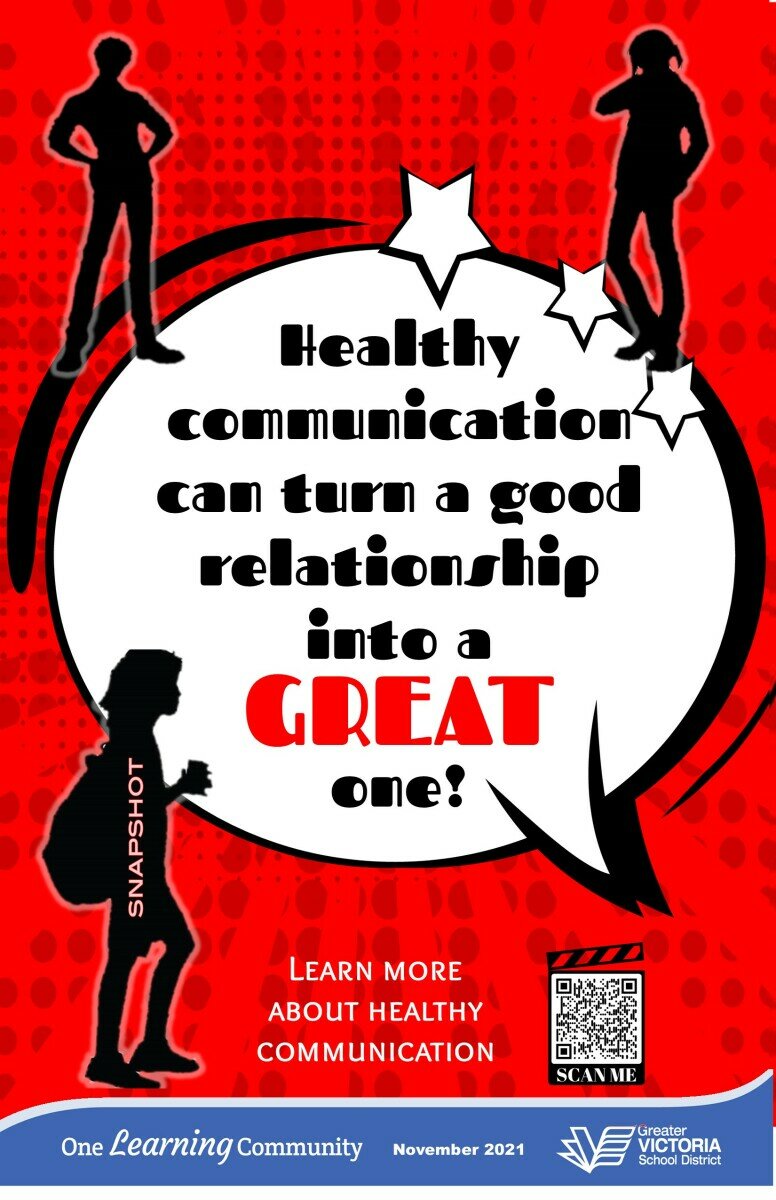|
|
|
|
|

| So your once chatty teen has suddenly clammed up. The first thing to do is to take a breath and understand that pulling away from parents is not only normal but also a necessary developmental stage of adolescence. Navigating this transition toward independence is difficult, and as much as teens hate to admit it, they still need parents to stay connected and involved in their lives. So while your teen is doing the work of separating, you can be doing the work of keeping connected!
|
| |
|
|
|
|
|
Communication is huge in every relationship – especially one between parents and their teenagers. It’s such a crucial time and just because they aren’t willing to talk as much doesn’t mean you can’t keep working on ways to have those important talks. Here are some tips to help you get your kids talking again.
|
|
|
Things your teenager might be thinking when you try to initiate a conversation:
|
|
|
My parents always overreact.
How can you be so nosy and intrusive?
How can you possibly imagine how my life feels?
When can I get back to my game or phone?
Mom always wants to bring up how we feel. | How can I mention sensitive subjects like sex, drugs, relationship issues.
What are the consequences for forgetting homework or not studying and should I even bother to tell them?
|
|
|
|
|
Try Not to Take Things Personally. If you initiate a conversation and get rebuffed, try not to take it personally. This can be hard! It can feel like your teen is constantly firing negative comments and observations at you as they test their growing independence. Other times a teen just might be pre-occupied with their own issues and aren't sure how to ask for help. However getting on the defensive doesn't foster an open space for talking, instead be persistent in your efforts to talk and try taking your cues from your teen.
|
|
|

|
Practice reflective listening. Nod your head in agreement or shake your head to mimic their disbelief. Be their mirror, do what they do. Respond to what they tell you by repeating them back with words similar to their own. Your goal here is to ensure they feel fully listened to.
An example of reflective listening: When your child says something similar to, “My teacher embarrassed me in class today when he woke me up by shaking my desk.”
|
|
|
You can respond by saying something like, "I can imagine that must have been so embarrassing when your teacher woke you up by shaking your desk.”
You might want to say something closer to, “Why are you falling asleep in class? Well, that means less screen time for you and an earlier bedtime.” Which you can certainly choose to do and be within your rights as a loving parent. However, the goal at hand is to get your teen talking and keep them talking and connected to you. So reflective listening can be your best friend and biggest partner in this effort.
|
|
|

|
Avoid Asking Questions. It sounds so counter-intuitive. But if your teen has fears about your judgment, or you often get into arguments, they won't want to open up. So avoid asking questions. If you hold back and listen to what your teen says, trust builds.
|
|
|
You can tackle more serious topics at another time, but as your child gets started talking about their day or recent experiences it can help to just nod or say simple supportive things: “That must have felt hard.” “Oh no! That happened?” “I see.”
|
|
|

|
Watch Something They Like. Ask them to show you the funniest meme or video they saw on their device today. They will most likely oblige and won’t stop with just one. There will be lots to talk about in relation to what they’re watching.
Ask Them What They Think. Our teens can become so used to us telling them what we think about everything and not being asked what they think in return. Asking for their viewpoint may catch them off guard; and start them talking.
|
|
|
Give them warnings. Instead of bringing up a deep conversation with no notice, most teens do much better if they have a little time to think and prepare. Mention something before they head out the door for the day like, “Let’s connect later tonight after dinner".
|
 |
|
|
|

|
Be aware of your tone. A 2019 study published in the journal Developmental Psychology determined that teenagers are much more likely to respond to instructions from parents that have a sense of encouragement and support for self-expression and choice. The findings showed the tone of voice used by parents can impact significantly on teenagers’ emotional, relational, and behavioural response. The study concluded “If parents want conversations with their teens to have the most benefit, it’s important to remember to use supportive tones of voice. It’s easy for parents to forget, especially if they are feeling stressed, tired, or pressured themselves.”
|
| |
|
|
|
|
|
|
|
|
Sometimes our well-meaning efforts to guide teens backfires, leading them to shut down or push back. It can be tough to get teens to open back up after they think we‘ve messed up. There are behavioral adjustments parents can make to get conversations flowing once again. Your tweens and teens will appreciate your efforts and return to you for the guidance they need (and crave!) even if they don‘t say it aloud...

|
| |
|
|
|
|
|
Culture affects how we perceive the world, how we behave, and how we communicate. To be able to function effectively in a multicultural society, one must have awareness of their own cultural values. These can be so deeply engrained in us that we are often unaware of them.
|
|
|

| This can lead to assumptions that whomever we are communicating with shares the same values as we do. Therefore, we must be aware of cultural differences in how we communicate and develop sensitivity and flexibility in adjusting to various cultures.
|
|
|
|
|
|
|
|

| Several copies of this poster have been delivered to all secondary schools for student learning.
One of the most important skills any of us can have is good communication. Our ability to communicate impacts our family, friends, and other close relationships. Good communication is one of the most requested skills by employers.
This poster demonstrates that open, honest and healthy communication can transform relationships.
|
| |
|
|
|
|
|
Parent Survey
Enhancing Substance Use Prevention in BC Schools Survey: In Phase 2 of an ongoing engagement initiative, the Province is seeking input on how to help meet the challenge of youth substance use and its associated harms. We invite parents and caregivers to complete this short survey by November 19.

|
|
|

|
Do you enjoy the monthly Snapshots?
Do you have suggestions on how to improve the Snapshots?
Do you have ideas for future topics?
Let us know!
We would love to hear from you!

|
|
|
|
|
|
|
|
|
|
|
|
|